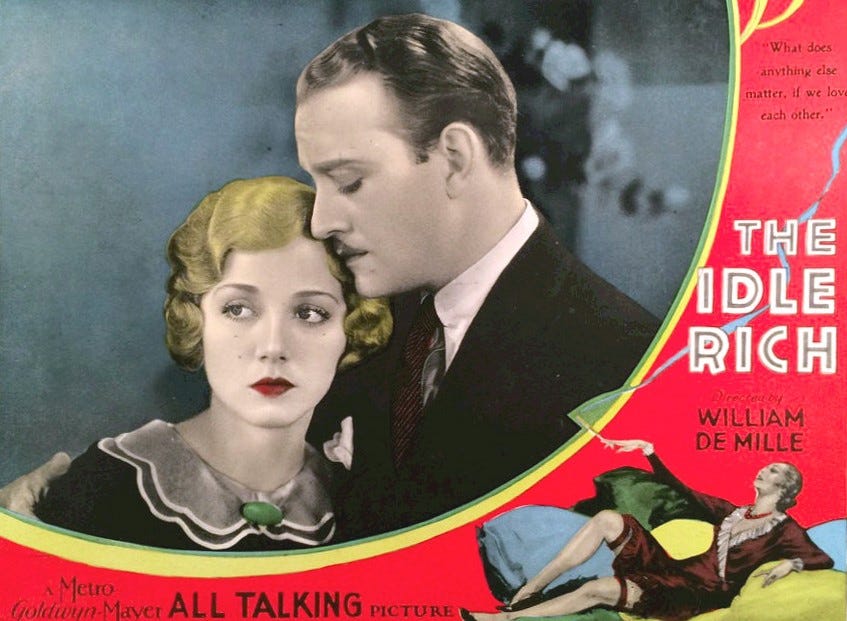Welcome to New Escapologist, the cheerful free newsletter from the magazine of the same name.
It’s an early one this month. We’re on the ball. Why? Well, I’m at the Edinburgh Festival over the next couple of days, getting some culture down my neck and presenting a film screening on Wednesday evening, which you should very much come to if you happen to be local. Instead of delaying the newsletter I decided to push the Big Red Button today. Blam! You’re welcome.
Issue 16 is selling remarkably well. Here’s where to grab your copy before it runs out.
But enough introductories. Yes, that’s a word. On with the newslettery show.
Automated Roasting Jacks
Aw, who’s this little fella?
It’s the turnspit dog. Hiya, boy!
The turnspit dog helped to cook our dinners back in the pig-on-a-spit days of the over-an-open-flame times.
He helped by running in a wheel that kept the spit turning. Like this.
The turnspit dog went extinct when he was replaced by the arguably less cute automated roasting jack.
Makes you think, doesn’t it?
Look, I’m not saying that humans won’t or even shouldn’t be automated out of existence. But maybe we could start to think about building a world where our permission to live is no longer dependent on being useful.
To All You Workers Out There
This line from Slacker (1990) cracks me up:
To all you workers out there, every single commodity you produce is a piece of your own death.
He’s supposed to be crazy but I sort-of know what he means. Maybe you do too.
Walkabout
From Vagabonding by Rolf Potts:
Culturally, the walkabout ritual is when Aborigines leave their work for a time and return to their native lifestyle in the outback.
On a broader and more mythical level, however, walkabout acts as a kind of remedy when the duties and obligations of life cause one to lose track of his or her true self.
To correct this, one merely leaves behind all possessions (except for survival essentials) and starts walking.
What’s intriguing about walkabout is that there’s no physical goal: It simply continues until one becomes whole again.
Contains Swearing
Are you satisfied by your job? Do you leap out of bed each morning with a song in your heart, eager to travel swiftly and painlessly to a fabulous workplace where the layout and technology are perfectly adapted to your goals and needs?
What of home life? Do you return from work each evening with time and energy to get stuck into your rewarding, creative projects? Do you have a good grasp of the sort of “home economics” mastered by your parents’ and grandparents’ generations?
If so, this book is not for you. If, on the other hand, your experience of the worker-consumer lifestyle is a screaming Hell of clueless, unsatisfying, underpaid, carcinogenic, insecure shambling that you never signed up for and is an affront to your years of difficult and expensive study, The Good Life for Wage Slaves might be the helpful volume–or at least the shoulder to cry on–you’ve been waiting for. It contains swearing. Also cats.
My 2020 book, The Good Life for Wage Slaves is enjoying a bit of a renaissance. Or at least a resurgence.
As well as an unexpected uptick in online sales, it seems to be a bestseller at Aye-Aye Books, my local bookshop. They’re flying out the door. Is there something afoot?
Why not get in on the inaction? Here’s where acquire a copy. (Or here if you’re a digimon).
Spiritual Contamination
From After Work: A History of the Home and the Fight for Free Time (2023) by Helen Hester and Nick Srnicek:
In the early 1900s, sociologist Thorstein Veblen delineated the existence of a ‘leisure class’ whose class status was, in no small part, expressed by their ability to withdraw from work.
Sounds nice. That’s what I’d do.
The aristocrats from the feudal era had also been able to separate themselves from the daily grind, and many from the new capitalist classes followed in this tradition. Whereas the lower classes — quite literally the working classes — were forced to work in order to survive, the upper classes were able to extract themselves from the ‘spiritual contamination’ of work. Instead they signified their social status through expressions of idleness, frivolity, and consumption.
In other words, it used to be fashionable to be “idle rich.” Maybe some people even aspired to it.
It’s bizarre how today’s rich do everything they can to avoid being seen as idle. They launch “brands,” lie to magazines about their impossible daily schedules, monopolise public discourse, claim to have the answers, run for president. Yawn.
Maybe liberal guilt (or survivor guilt?) is at the bottom of it: “I know you have to bust your hump to stay alive; I’m sorry for that but even here at the top of the tree, we work hard too.”
Or perhaps it’s indicative of the total dominance of the work ethic.
Either way: fuck ’em. Stay at the bottom of the tree, I say, and work less anyway. Don’t aspire to riches, especially if it means hard work when you get there.
Don’t get your hands or spirits dirty if you don’t have to. Idleness and frivolity are the order of the moment.
Remember what to say when questioned: “Dah-ling, I do not dream of labour.”
Choice and Control
From a decent article about Universal Basic Income (UBI) in the Observer:
The only basic income pilot currently running in the UK is a Welsh government scheme for 600 young care leavers. Each is receiving £1,600 a month (£1,280 after tax), for 18 months, so that researchers can evaluate the scheme’s benefits. An interim report suggests recipients feel “a greater sense of choice and control over the future”.
Well yeah.
Having to scrounge and toil for the essentials of life is neither necessary or right. If society were better organised, none of the suffering inherent to the jobs system would exist. Instead, we’d have, as the article suggests, “choice and control.”
Choice and control! Natural gifts snatched from us by an unjust and increasingly rampant capitalism.
Give us the basics, oh leaders of the world, so we can once again have our choice and control. You are powerful and you are capable of granting us this meagre request. Give us the basics we require to live with dignity — by which I mean the ability to spend our days how we like — and we’ll never speak ill of your ugly orange asses again.
Or to put it more eloquently, Dr. Neil Howard at University of Bath says:
I think we need to be calling for basic income on the basis of a sense of shared morality, because economic insecurity is grim. It’s empirically damaging and it’s based on historical injustices that are translated into present inequalities. So there’s a very strong case for redistributive basic income right now, irrespective of whether or not the machines are coming.
Currently, we do not work because we love it; we work because we have to. This would change under UBI. Unwanted, unfair, badly-paid jobs would practically vanish overnight.
And That is What I Did
Before I Go is a new memoir by renegade comedian John Dowie. He’s an Escapologist, tried and true. Early in the book he writes:
After nine months I decided that working for a living was not for me. Apart from the intolerable repetition of getting up at the same time every day, catching the same bus, arriving at the same building, seeing the same people, doing the same thing all day and then doing it all again tomorrow, I also had to endure having a boss – someone who told me what to do, where to be and when. As if my life was not my own. There had to be something better than this, but what?
Later, he writes this, which gives me goose pimples:
[In the late 1970s] there were three recognized routes into performing comedy. All were beyond me. I was not going to don a frilly shirt and perform in Northern nightclubs. I was not going to be a jolly Red or Bluecoat in a holiday camp. I was not going to go to Oxbridge, be in a revue and storm the Edinburgh Festival before conquering Broadway and/or the BBC. The only realistic choice I had was to follow the example set by the theatre groups I admired: to write, perform and tour a one-man show in venues similar to Birmingham Arts Lab. And that is what I did.
“And that is what I did…”
We’re used to hearing “and that is what I’ll do” inside our own heads. But here’s a man at the end of that journey, looking back on the decision and a life well lived.
“And that is what I did…”
*
Before I Go is due for release this week. Here’s where to go for print and digital editions. You can also get his earlier memoir about a life on the road here (e-book only).
Letter to the Editor: We Don’t Need Amplification
To send a letter to the editor, simply write in. You’ll get a reply and we’ll anonymise any blogged version.
Friend R writes:
Hi Rob,
I thought you might be interested in what I’ve seen happening to abandoned offices in the last couple of years. Loads of them in Glasgow city centre are being used for the arts, which is great but it feels and looks very strange!
The brass band I’m in rehearses on the second floor of an office. We don’t need amplification, just space and nobody to complain about the noise, so it works really well for us. The same office hosts loads of other bands, some pottery people, some actual artists with clay and oils etc, crafty types and there’s something to do with protesting and foodbanks as we can see their tinned goods and flags neatly organised into piles in their bit.
It’s a weird atmosphere though, as we still have the strip lighting, the lanyard-operated entry gates, the grubby turquoise carpets, the unopenable windows with cream-coloured blinds and piles of adjustable office chairs and bits of desk stacked up in every corner.
Anyway, [the newsletter was a] great read as always, and hopefully catch up soon!
That’s all for another month. I’m off to enjoy Edinburgh now. Or “auld reekie” as we call it. Because it smells. Of jobbies. 💩
Much love,
Robert Wringham
Editor, New Escapologist
www.newescapologist.co.uk
PS: I’ll leave you with this notion from Jeremy Gross who sadly passed this week. Zichrono Livracha.
What if the global economy were structured, not to send wealth into the hands of a tiny group of oligarchs, but rather to ensure the best possible lives for everyone, ensuring that people lived fulfilling lives free from want, engaged in activities that interested them and engaged them, enabling them to pursue their own interests alongside working for the common good?








